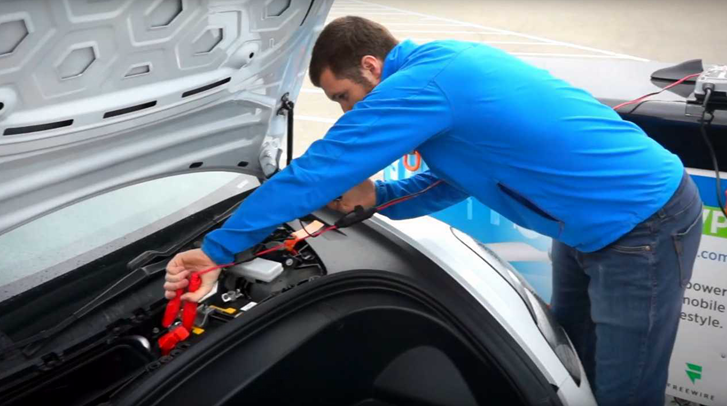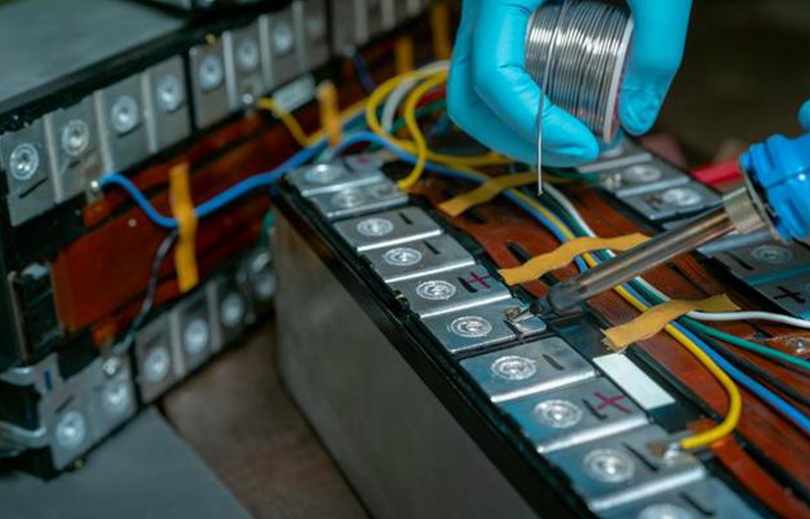Is the potential of lithium batteries in low-speed electric vehicles being explored?
Introduction:
In recent years, the world has seen a significant shift towards electric vehicles (EVs) as a means of reducing carbon emissions and dependence on fossil fuels. While high-speed EVs have gained significant attention, low-speed electric vehicles (LSEVs) have emerged as a promising alternative for short-distance transportation. In this article, we will explore the potential of lithium batteries in LSEVs, highlighting their benefits and discussing the challenges that need to be overcome.
Benefits of Lithium Batteries in LSEVs:
1. Energy Density:
One of the key advantages of lithium batteries is their high energy density. This means that they can store more energy in a smaller and lighter package compared to other battery types, such as lead-acid batteries. In the context of LSEVs, where compactness and weight are crucial factors, lithium batteries provide a significant advantage by enabling longer driving ranges and improved efficiency.
2. Longer Lifespan:
Lithium batteries have a longer lifespan compared to traditional lead-acid batteries commonly used in LSEVs. This results in reduced maintenance costs and a longer operational life, making them an economically viable option for LSEV owners. Moreover, the extended lifespan also contributes to a more sustainable transportation system, as it reduces the environmental impact associated with battery disposal and replacement.
3. Faster Charging:
The charging time of a battery is a critical factor in the adoption of EVs. Lithium batteries have a faster charging rate compared to lead-acid batteries, enabling LSEV owners to recharge their vehicles in a shorter period. This convenience promotes the use of LSEVs, especially in scenarios where frequent charging is required, such as urban commuting or short-distance deliveries.
Challenges and Potential Solutions:
1. Cost:
The initial cost of lithium batteries is relatively high compared to lead-acid batteries. However, advancements in battery technology and mass production are expected to drive down the cost of lithium batteries in the near future. Additionally, the reduced maintenance and longer lifespan of lithium batteries contribute to overall cost savings throughout the vehicle\’s lifecycle.
2. Safety:
Lithium batteries come with safety concerns, primarily related to the risk of thermal runaway and fire incidents. To address this issue, manufacturers are continually improving battery design and implementing advanced safety features, such as thermal management systems and battery management systems. Regulatory standards and certifications also play a vital role in ensuring the safe integration of lithium batteries in LSEVs.

3. Recycling and Disposal:
As the demand for lithium batteries increases, proper recycling and disposal methods need to be established to minimize environmental impact. Efforts are being made to develop efficient recycling processes to recover valuable materials from lithium batteries. Additionally, the implementation of battery stewardship programs and regulations can ensure responsible disposal and prevent battery waste from ending up in landfills.
Conclusion:
Lithium batteries hold immense potential in powering LSEVs, offering benefits such as high energy density, longer lifespan, and faster charging. Despite challenges related to cost, safety, and recycling, ongoing advancements in technology and increased adoption of EVs are expected to address these issues. As governments and individuals continue to prioritize sustainable transportation, the adoption of lithium batteries in LSEVs will likely accelerate, contributing to a greener and more efficient future.
-
 LiFePO4 stands for Lithium Iron Phosphate, which is a type of rechargeable battery. This battery is commonly used in electric vehicles, power tools, and consumer electronics due to its high energy density, long cycle life, and safety features. The LiFePO4 battery is made up of a cathode (positive electrode) made of lithium iron phosphate and an anode (negative electrode)...Læs mere
LiFePO4 stands for Lithium Iron Phosphate, which is a type of rechargeable battery. This battery is commonly used in electric vehicles, power tools, and consumer electronics due to its high energy density, long cycle life, and safety features. The LiFePO4 battery is made up of a cathode (positive electrode) made of lithium iron phosphate and an anode (negative electrode)...Læs mere -
 Introduction The battery industry plays a crucial role in powering the future with advanced energy solutions. As the demand for portable electronic devices, electric vehicles, and renewable energy sources continues to grow, the development of high-performance batteries has become more important than ever. In this article, we will explore the significance of the battery industry and its impact on...Læs mere
Introduction The battery industry plays a crucial role in powering the future with advanced energy solutions. As the demand for portable electronic devices, electric vehicles, and renewable energy sources continues to grow, the development of high-performance batteries has become more important than ever. In this article, we will explore the significance of the battery industry and its impact on...Læs mere -
 Industrial Power Products Batteries: Providing Reliable Energy Solutions for Industrial ApplicationsIn today's rapidly advancing industrial landscape, reliable and efficient energy solutions are essential for maintaining smooth operations. Industrial Power Products Batteries (IPPB) has been at the forefront of providing high-quality power storage solutions for a wide range of industrial applications. With their commitment to innovation, durability, and sustainability, IPPB batteries have become the go-to choice for businesses worldwide. IPPB...Læs mere
Industrial Power Products Batteries: Providing Reliable Energy Solutions for Industrial ApplicationsIn today's rapidly advancing industrial landscape, reliable and efficient energy solutions are essential for maintaining smooth operations. Industrial Power Products Batteries (IPPB) has been at the forefront of providing high-quality power storage solutions for a wide range of industrial applications. With their commitment to innovation, durability, and sustainability, IPPB batteries have become the go-to choice for businesses worldwide. IPPB...Læs mere -
 Introduction Lithium-ion batteries have become an essential source of power for many electronic devices. The demand for high-performance batteries has been increasing in recent years, especially in applications where safety, long life, and high reliability are critical. LiFePO4 batteries are one such solution that offers several advantages over other battery technologies. In this article, we will discuss the features...Læs mere
Introduction Lithium-ion batteries have become an essential source of power for many electronic devices. The demand for high-performance batteries has been increasing in recent years, especially in applications where safety, long life, and high reliability are critical. LiFePO4 batteries are one such solution that offers several advantages over other battery technologies. In this article, we will discuss the features...Læs mere -
 Lithium batteries have revolutionized the way we power our devices, from smartphones to electric vehicles. Among the various types of lithium batteries available, the lithium iron phosphate (LiFePO4) battery stands out for its enhanced longevity and superior performance. In this article, we will delve into the capabilities and advantages of a 100Ah LiFePO4 lithium battery. LiFePO4 batteries are known...Læs mere
Lithium batteries have revolutionized the way we power our devices, from smartphones to electric vehicles. Among the various types of lithium batteries available, the lithium iron phosphate (LiFePO4) battery stands out for its enhanced longevity and superior performance. In this article, we will delve into the capabilities and advantages of a 100Ah LiFePO4 lithium battery. LiFePO4 batteries are known...Læs mere -
 In today's world, with the growing demand for energy, it has become essential to find more efficient and reliable ways of storing it. One such way is through the use of batteries. Batteries are devices that store electrical energy chemically and convert it to electrical energy when required. One of the most efficient and reliable batteries available in the market...Læs mere
In today's world, with the growing demand for energy, it has become essential to find more efficient and reliable ways of storing it. One such way is through the use of batteries. Batteries are devices that store electrical energy chemically and convert it to electrical energy when required. One of the most efficient and reliable batteries available in the market...Læs mere -
 When it comes to boating, having a reliable battery is essential. Whether you're out on the open water or docked at the marina, a marine battery powers your boat's electrical systems and ensures that you can enjoy a hassle-free boating experience. But with so many options available, how do you choose the best boat marine batteries for your needs? In...Læs mere
When it comes to boating, having a reliable battery is essential. Whether you're out on the open water or docked at the marina, a marine battery powers your boat's electrical systems and ensures that you can enjoy a hassle-free boating experience. But with so many options available, how do you choose the best boat marine batteries for your needs? In...Læs mere

